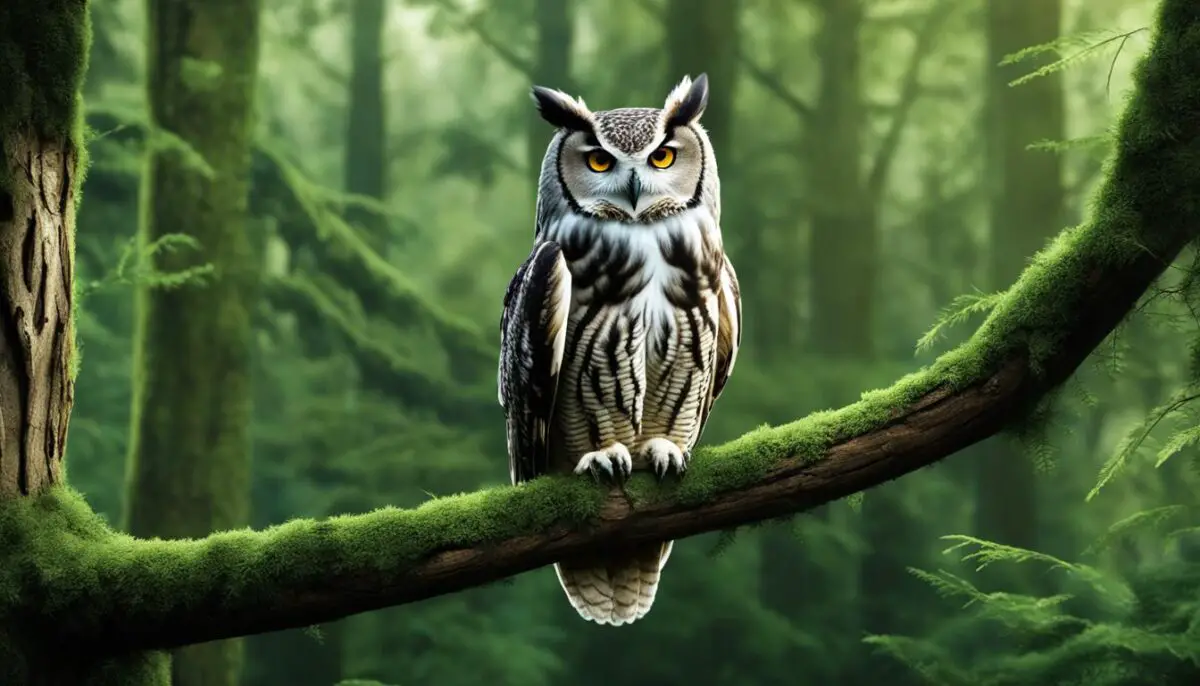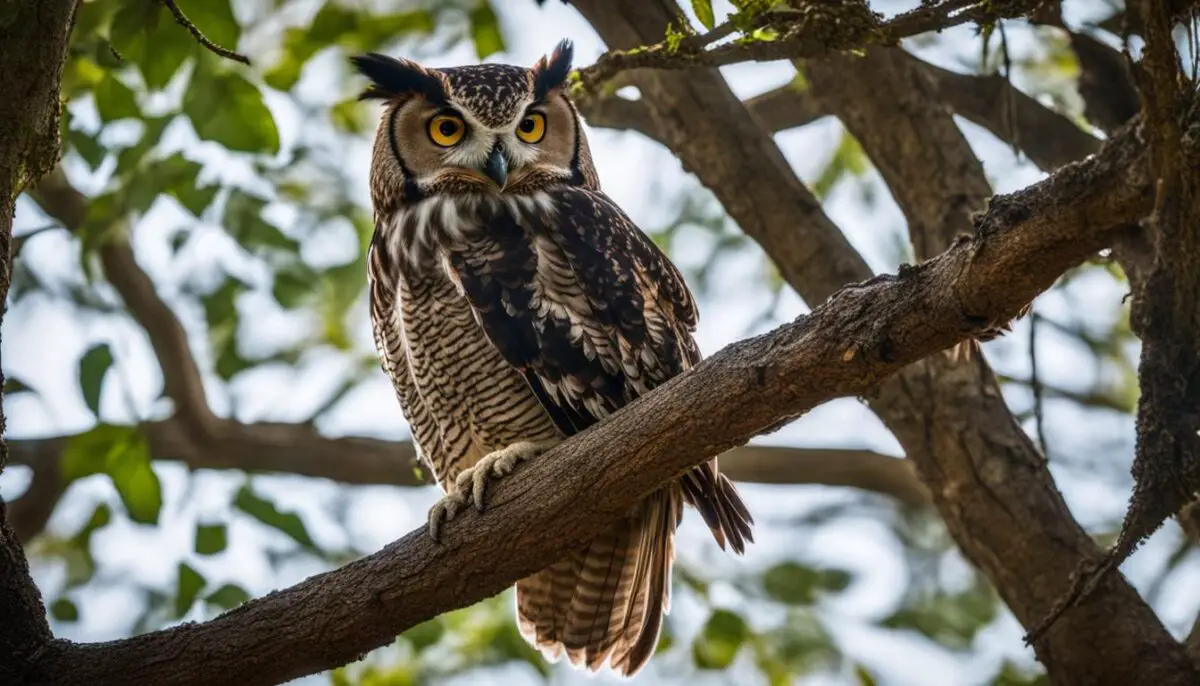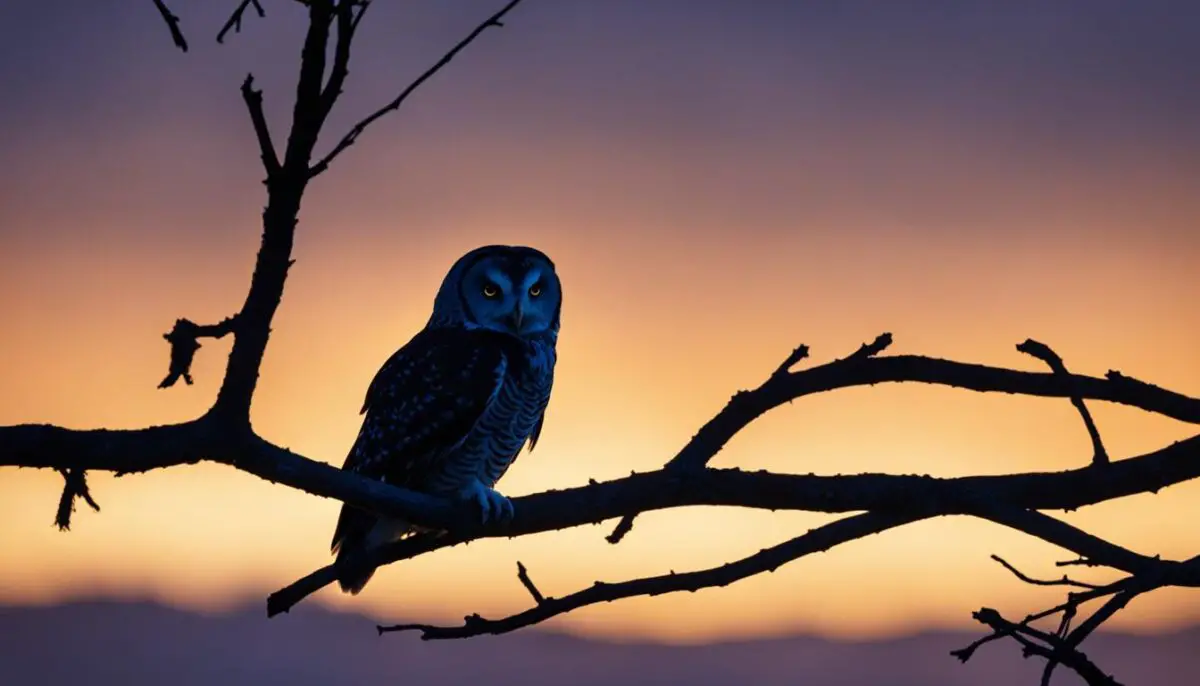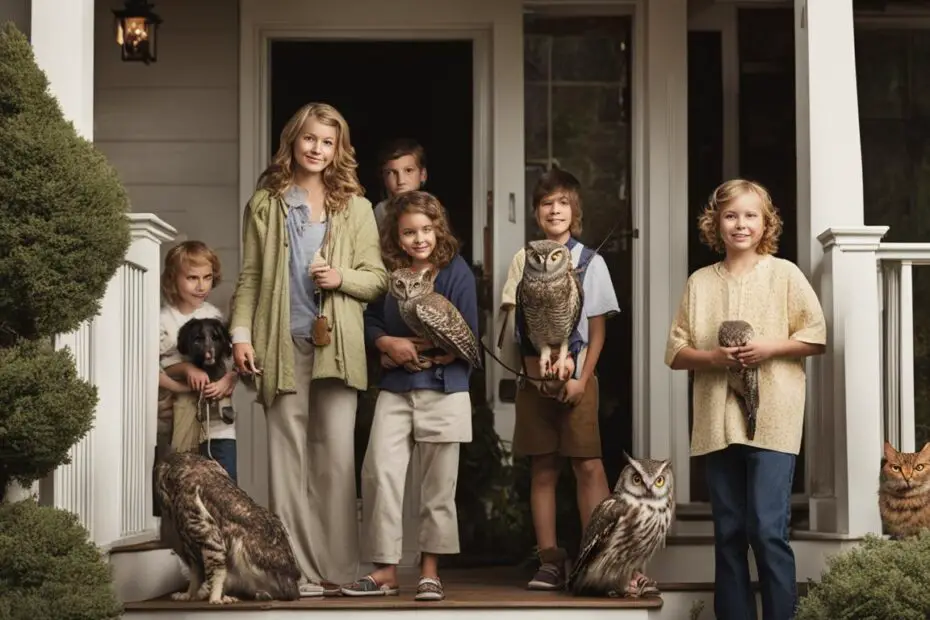Owls have long fascinated humans with their mysterious and captivating nature. With their striking appearance and reputation as wise creatures, it’s no wonder that some people are drawn to the idea of owning an owl as a pet. But before you decide to bring one of these majestic birds into your home, it’s important to consider whether they truly fit into family life.
First and foremost, it’s crucial to understand that owls are wildlife species that have specific needs and requirements. In many countries, including the United States, owning an owl as a pet is illegal due to the welfare concerns involved in keeping a wild animal in captivity. The U.S. Fish and Wildlife Service only permits owls to be kept for rehabilitation purposes, with the ultimate goal of releasing them back into the wild.
Beyond legalities, there are practical challenges to consider when it comes to owning an owl. These birds are wild animals with instinctual behaviors that may not align with the expectations of a typical household. Owls are independent creatures that require a significant amount of space to roam and fly. They are primarily nocturnal, meaning they are active at night when their human companions are asleep. This can make it difficult to establish a bond or provide the necessary companionship that a family pet should offer.
Additionally, owls have very specific dietary needs and require a whole prey diet. They will rely on live prey such as mice or small birds, which may not be a comfortable or feasible option for many families. Owls also have unique digestive systems that result in the regurgitation of undigested parts in the form of pellets. This can be messy and require daily cleaning to maintain a clean and safe living environment.
Considering all of these factors, it becomes clear that owls are not well-suited for life as household pets. While they may be fascinating and beautiful creatures, their needs and behaviors are best suited for their natural habitats. It is important to respect and preserve these creatures in the wild, supporting conservation efforts and appreciating their beauty from a distance.
Key Takeaways:
- Owls are wildlife species, and it is illegal to own them as pets in many countries, including the US.
- Owls are independent creatures and may not provide the companionship typically expected from a family pet.
- Owls have specific dietary needs and require a whole prey diet, which may not be suitable for all families.
- Owls have unique digestive systems, leading to messy remnants and the need for daily cleaning.
- It is important to respect and preserve owls in their natural habitats and support conservation efforts.
Owls are Wild Animals
Owls are magnificent creatures that captivate our imagination with their unique features and silent flight. However, it is important to understand that owls are wild animals and not suitable for life as house pets.
Owls have specific needs that cannot be met in a typical home environment. One of the key requirements is a large space to fly and hunt. Owls are powerful birds and need ample room to spread their wings and exercise their natural hunting instincts. Confined living spaces can lead to physical and psychological distress for these majestic creatures.
Furthermore, owls are predators with sharp talons and beaks that are designed to catch and kill prey in the wild. While their hunting abilities make them fascinating, owning an owl as a pet can pose a potential danger to humans and other pets in the household. Their sharp talons and beak can cause significant harm if not handled with the utmost care and expertise.
It is important to note that owning an owl as a pet is illegal in many countries, including the United States. The legalities of owning a pet owl are in place to protect the well-being and conservation of these remarkable creatures. Authorities recognize that owls require specific diets, environments, and professional care that are difficult to provide in a domestic setting.
“Owning an owl as a pet is illegal in many countries, including the United States, due to the welfare concerns and the need for specific diet and environment for their well-being.”
It is crucial to respect and preserve the natural habitats of owls, allowing them to thrive in their own ecosystems. There are alternative ways to appreciate and learn about these magnificent birds, such as visiting wildlife sanctuaries, participating in educational programs, or supporting conservation efforts. By promoting responsible and ethical interactions with wildlife, we can help ensure the continued existence of owls for generations to come.
| Reasons Owls are not Suitable as House Pets |
|---|
| Owls require large spaces for flying and hunting. |
| Owls are wild predators and can pose a danger to humans and other pets. |
| Owning an owl as a pet is illegal in many countries. |
| Owls have specific dietary and environmental needs that are challenging to meet in a domestic setting. |
Owls are Independent Creatures
When considering an owl as a pet, it’s important to understand that these magnificent creatures are highly independent and have unique needs. Owls require a significant amount of space to roam and fulfill their natural instincts. they are primarily nocturnal, meaning they are most active at night when their human companions are asleep.
This independent nature and nocturnal behavior make owls challenging to care for and not recommended as house pets. Unlike conventional pets, owls do not seek human companionship and don’t provide the same level of interaction and companionship. If you are seeking a pet bird for companionship, there are more suitable options available.
While owls are incredible creatures to admire and appreciate from a distance, they are not well-suited for domestic life. It’s crucial to prioritize their welfare and provide them with environments that cater to their natural behaviors and requirements. Owning an owl as a pet may not only be impractical but could also compromise the well-being of these magnificent animals.
“Owls are wild birds, and despite their allure, they are best appreciated in their natural habitats.”
If you are passionate about birds and wildlife, consider supporting conservation efforts and bird sanctuaries instead. By doing so, you can contribute to the preservation and protection of owls and their habitats.

Gorgeous Owls That Are Not Suitable as Pets
| Owl Species | Reasons Not Suitable as Pets |
|---|---|
| Barn Owl | Requires open areas for hunting and specialized diet |
| Snowy Owl | Large size and specific environmental requirements |
| Great Horned Owl | Aggressive nature and demanding care needs |
Owls Require Special Care and Space
Proper care and adequate living space are crucial when it comes to pet owls. These magnificent creatures have specific needs that must be met for their well-being. Let’s explore the key factors to consider when caring for pet owls.
Living Space
Owls need a substantial amount of space to live and exercise. Ideally, they require territories of at least two acres to fulfill their natural behaviors, such as hunting for food and mating. Providing them with ample room to fly and explore is vital for their physical and mental health.
Dietary Needs
Owls have specific dietary requirements that differ from traditional pets. They rely on a whole prey diet, which typically includes three to four mice a day. This diet provides essential nutrients and simulates their natural hunting instincts. Owls must have access to fresh, suitable prey to maintain a balanced diet and overall health.
Housing Guidelines
When it comes to housing for pet owls, it’s crucial to follow federal guidelines regarding size, location, and structure. Owls cannot be kept in cages or kennels designed for traditional pets. Their housing should mimic their natural habitat as closely as possible, providing perches, nesting areas, and appropriate substrates.
“Proper housing for pet owls is essential. It should prioritize their comfort, safety, and ability to exhibit natural behaviors.”
Cleanliness and Maintenance
Owls are messy eaters. They often leave behind guts and body parts from their prey. If not cleaned daily, this can attract bugs and pose hygiene issues. Additionally, owls have a unique digestive system that results in the regurgitation of undigested parts in the form of pellets. Regular cleaning and maintenance are necessary to keep their environment clean and prevent health risks.
Overall, caring for pet owls requires constant attention, expertise, and a deep understanding of their specific needs. The rewards of providing proper care and space to these magnificent creatures are immeasurable.

| Key Points | Details |
|---|---|
| Living Space | Owls need at least two acres of territory for exercise and natural behaviors. |
| Dietary Needs | Owls require a whole prey diet, including three to four mice a day. |
| Housing Guidelines | Follow federal guidelines for owl housing to ensure their comfort and safety. |
| Cleanliness and Maintenance | Regular cleaning is essential due to messy eating habits and pellet regurgitation. |
The Challenges of Owning an Owl
Owning an owl as a pet comes with a unique set of challenges. These majestic creatures have specific needs and behaviors that can be quite demanding for their owners. Here are some of the main difficulties you may encounter when considering a pet owl:
Nocturnal Noises and Activity
One of the challenges of owning an owl is their nocturnal nature. Owls are most active at night, which means they can be noisy during the hours when you and your family are trying to sleep. The hooting and other vocalizations can disrupt your household’s sleep patterns and can make it difficult to get a good night’s rest.
A Lifelong Commitment
When you bring an owl into your home, you need to be prepared for a long-term commitment. Owls have a remarkably long lifespan, with some species living up to 35 years or more. Owning an owl means committing to their care for the duration of their lives, which can be a significant responsibility and require a dedicated and consistent commitment from their owners.
Messy Prey Remnants
Owls have specific table manners that can be challenging to deal with. After a meal, they leave behind messy remnants from their prey, including feathers, bones, and other parts. This can create a mess that needs to be cleaned up regularly to maintain a clean and hygienic living environment for both you and your owl. It’s essential to be prepared for the daily cleaning that comes with owning a pet owl.
Limited Access to Veterinary Care
Another challenge of owning an owl as a pet is the limited availability of veterinary care. In many countries, owning a pet owl is illegal due to conservation and welfare concerns. As a result, finding a veterinarian with experience in treating owls can be difficult. It can be frustrating and challenging to find the necessary support and care for your owl’s health needs, which is an essential aspect of responsible pet ownership.
Despite these challenges, some people still find joy in owning a pet owl and are willing to put in the necessary effort and care. However, it’s crucial to consider these factors carefully before deciding to bring an owl into your home.

| Challenges | Solutions |
|---|---|
| Nocturnal Noises and Activity | Provide a quiet and separate sleeping area for your owl and consider using earplugs or white noise machines to minimize disturbances. |
| A Lifelong Commitment | Ensure you have the time, resources, and commitment to care for your owl throughout its entire lifespan, including providing proper housing, diet, and enrichment. |
| Messy Prey Remnants | Establish a regular cleaning routine to promptly remove and dispose of owl prey remnants. Use appropriate cleaning products and tools to maintain a sanitary living environment. |
| Limited Access to Veterinary Care | Research and connect with avian veterinarians who specialize in treating owls. Join local bird clubs or online communities to find recommendations and share knowledge and experiences with other owl owners. |
Owls and How They Fit Into Family Life
Owls are fascinating creatures, but they are not suitable for family life as house pets. Owls are wild animals with specific needs that cannot always be met in a home environment.
Unlike dogs or cats, owls do not seek human companionship and are not interested in cuddling or socializing. Their natural instincts and behaviors are better suited for life in the wild, where they can fly freely and hunt for their own food.
One of the challenges of having an owl as a pet is their specific diet, which involves live prey. Feeding an owl live prey may not be suitable or comfortable for every family, especially those who prefer not to have small animals or insects in their homes.
Another consideration is that owls are nocturnal creatures, meaning they are active at night when their human companions are typically asleep. This can cause disruptions in a household’s daily routine and sleep patterns.
Furthermore, owls are messy and destructive animals. Their natural behaviors, such as tearing apart prey and regurgitating undigested parts in the form of pellets, can make it challenging to maintain a clean and safe living environment.
“Owls have unique needs and behaviors that can be challenging for families. They are wild animals who belong in their natural habitats, not confined to a domestic setting.”
In addition, imprinting is a behavior commonly seen in owls, whereby they form strong bonds with their caregivers. This can create difficulties when it comes time to release the owl back into the wild, as they may have become dependent on human care.
In conclusion, owls do not make good house pets due to their wild nature, specific dietary needs, nocturnal behaviors, messiness, and imprinting tendencies. It is important to respect owls as wildlife species and appreciate them from a distance, supporting efforts to protect and preserve their populations in their natural habitats.
Conclusion
In conclusion, while owls may hold a certain allure as potential pets, it is important to understand that they are not suitable for domestic life. Owls have specific care requirements, extensive space needs, and behavioral patterns that are better suited to their natural habitats. Furthermore, owning an owl as a pet is often illegal due to welfare concerns and the need to protect these magnificent creatures in their rightful environments.
It is crucial to prioritize the conservation of owls and their populations. Instead of trying to keep them as pets, we should admire these captivating creatures from a distance and show our support for conservation efforts. By promoting responsible attitudes towards wildlife, we can ensure the preservation of owl species and their ecosystems for generations to come.
Let’s appreciate the beauty of owls in their natural settings and contribute to their well-being by advocating for their conservation, rather than attempting to turn them into house pets. Together, we can make a positive impact on the protection and welfare of these remarkable birds.
FAQ
Do owls make good pets?
Owls do not make good pets. They are wild animals with specific needs that cannot be met in a home environment.
Can you have an owl as a pet?
Owning an owl as a pet is illegal in many countries, including the US. They are protected wildlife species.
What are the pros and cons of having an owl as a pet?
The cons of having an owl as a pet include the need for specific care, space, and expertise that most households cannot provide. The pros are difficult to find as owls are not suitable for family life.
What are the legalities of owning a pet owl?
Owning an owl as a pet is illegal in many countries, including the US, due to welfare concerns and the need to preserve these animals in their natural habitats.
Do owls make good house pets?
No, owls are not well suited for life in captivity. They require a large amount of space to fly and hunt, which cannot be provided in a typical home environment.
What is involved in owl pet care?
Owl pet care involves meeting their specific dietary needs, providing a large space for them to live and exercise, and addressing their nocturnal behavior.
What are the best owls for pets?
Owls are not suitable as pets, so it is not recommended to search for the best owls for pets.

